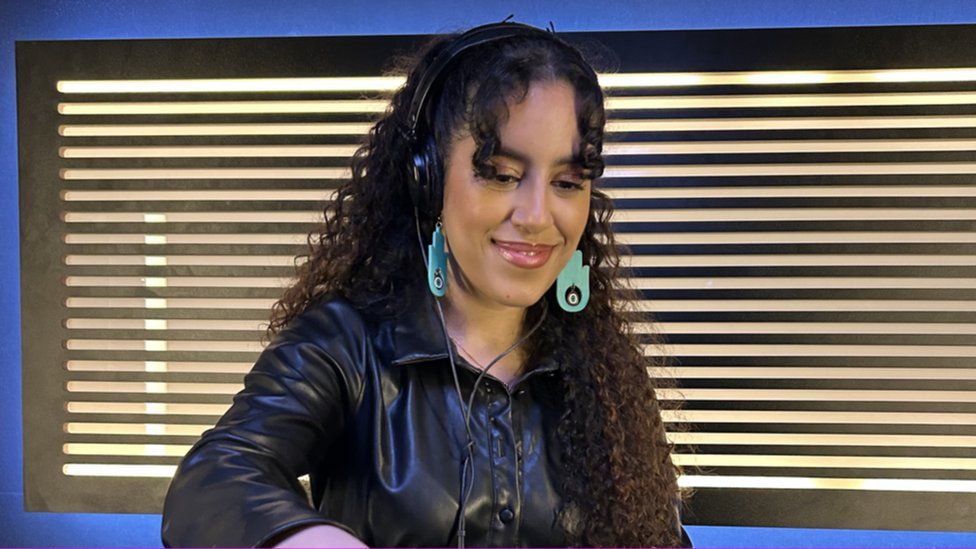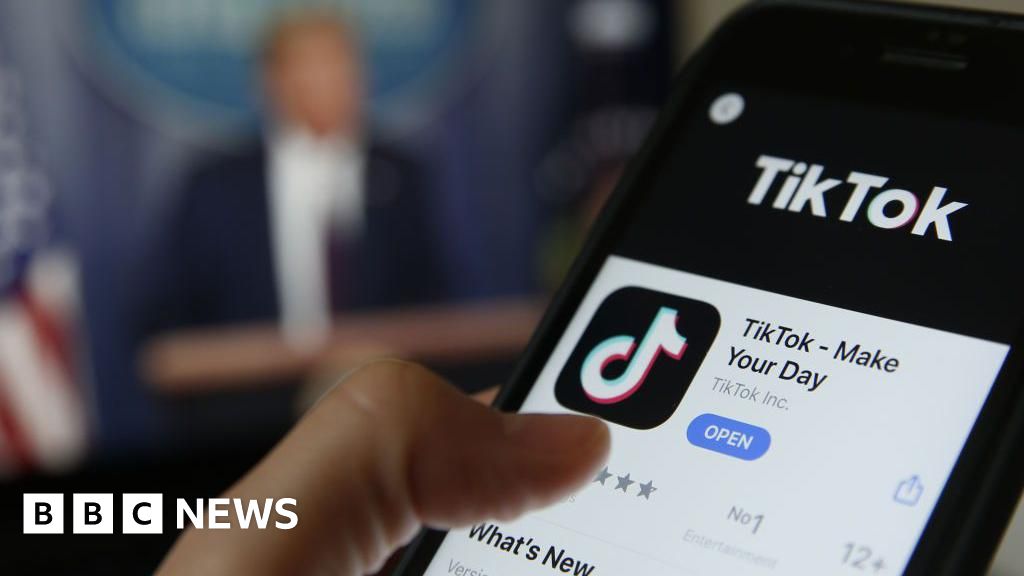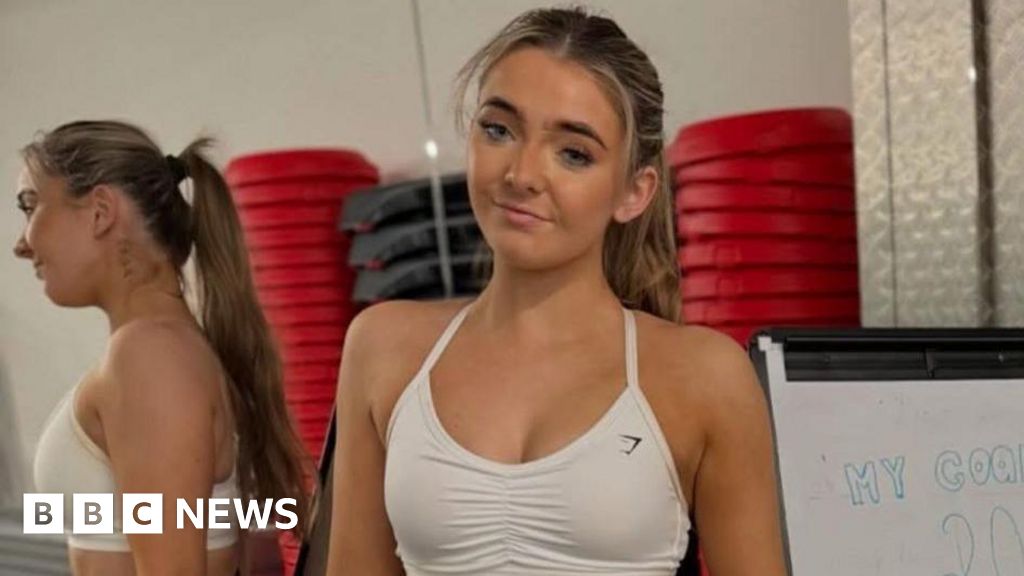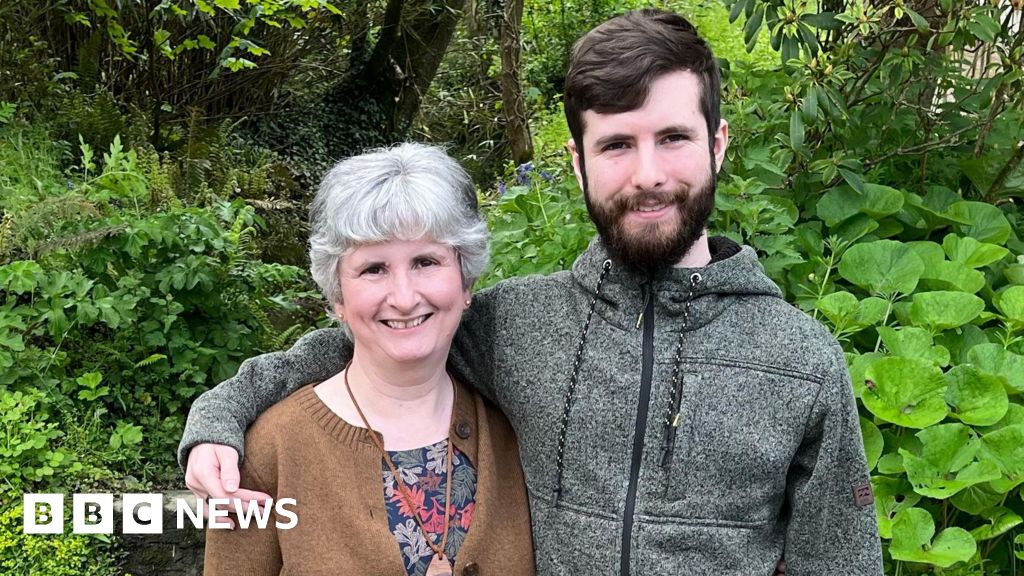ARTICLE AD BOX

Nooriyah has been DJing and producing for eight years
By Megan Lawton
BBC Newsbeat
You're in a club, the music's pounding and the lights are flashing.
You look up to the DJ booth but there's no-one there, because it's an AI-generated mix.
With mixing software getting more sophisticated and venues cutting back on budgets, that's the worry of some people in the dance music industry.
But can a computer programme ever replace the real-life connection between a DJ and a crowd?
In a word, no. At least not in Nooriyah's opinion.
She's a 28-year-old DJ who lives in London. She plays venues around the world, sometimes to crowds of more than 40,000 people.
AI programmes have been available in her industry for years, recommending songs to mix based on their tempos.
But they haven't taken Nooriyah's job yet, and she thinks she knows why.
"Because the way that I connect with my audiences is very difficult to replicate," she says.
"Imagine a raver looking over at me when I'm DJing, seeing me sweat and dance just like them.
"In that moment they feel that intimate connection that AI couldn't."
Image source, Hannah Rose
Image caption,Hannah mainly plays garage and bassline in her DJ sets
Hannah Rose learnt to DJ during lockdown and is working towards making it her main source of income.
She's getting lots of work but has noticed venues cutting back budgets as the cost-of-living crisis bites.
"Since Covid there's been a massive shift towards people asking to stream sets," she says.
"Especially when it's somewhere overseas, if they don't have the money to get you to play in a different country, it's an easy and accessible way to get the artists on their line-ups without actually having to physically have them in the room."
Hannah's noticed a lot of nightclubs already have a camera set up for streaming behind the decks.
She's now worried that will extend to virtual sets.
"They've got a long way to go to match the emotional intelligence of a human being, but with AI generating original compositions, it could be quite a dark future for DJs," she says.
In March this year, an East London venue hosted an AI rave to mixed reviews, with some saying the music felt "dry and empty".
Image source, Getty Images
Image caption,Dance music is one of the UK's favourite genres - but DJs say the support it gets doesn't reflect that
It may be that humans make the best DJs but it's not such a straightforward story for producers.
As well as being a DJ, Nooriyah makes her own music.
Her creative process currently involves experimenting with different sounds on software, before mastering tracks. It's this final stage where AI is coming in.
"To me, the conversation about AI in producing is very overdue," she says.
"There are already at least 10 different software programmes that mix music and could put producers out of jobs".
She wants to see a better dialogue between those in the music industry and AI developers.
"I think the danger here is there's work being done without a discussion about what it would mean for the music industry."
One solution, she says, is to tax the AI companies.
"Firstly, let's slow down the release of these AI programmes, and tax the developers, investing that money in putting on training for people who lose their jobs to AI."
Phil Kear agrees. He works with the Music Union and is worried AI will put limits put on the amount people are willing to pay for recordings made by human creators.
"AI music will be cheaper," he says. "And I think that people will be tempted to use it, maybe bars."
Although he says, its full influence will only go as far as humans will let it.
"A lot will be determined by the general public's willingness to accept AI or the quality of the music it can produce."
He doesn't think the majority of commercial music will be impacted, but highlights "background" music as an area at risk.
"With music on TV and films, I think the public will be much more willing to accept AI-generated music because there's no personality associated with it," he says.
"Whereas I think in bars and clubs, there's a certain amount of investment."
Like many industries, the world of music has already been influenced by advances in technology.
For Nooriyah, this development is the same.
"Music has evolved rapidly over time. We went from tapes to CDs, to radio to streaming services, and at every level, there was a disruption. This is no different."
"We need to just recalibrate, find our footing and regulate things so it's an exciting collaborator rather than an enemy."

 1 year ago
56
1 year ago
56








 English (US) ·
English (US) ·